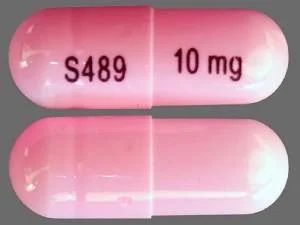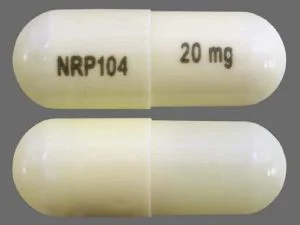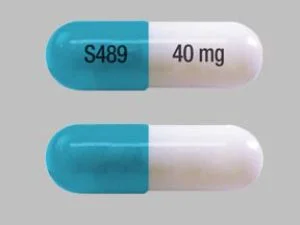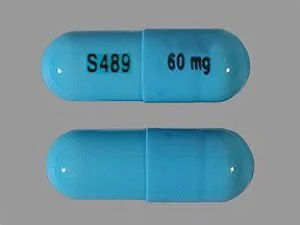Category
- Buy Adderall Online
- Buy Adipex Online
- Buy Alprazolam Online
- Buy Ambien Online
- Buy Ativan Online
- Buy Belbien Online
- Buy Butalbital Online
- Buy Carisoprodol Online
- Buy Clonazepam Online
- Buy Codeine Online
- Buy Darvocet Online
- Buy Diazepam Online
- Buy Dilaudid Online
- Buy Farmapram Online
- Buy Fioricet Online
- Buy Gabapentin Online
- Buy Hydrocodone Online
- Buy Hydromorphone Online
- Buy Klonopin Online
- Buy Ksalol Online
- Buy Lorazepam Online
- Buy Lortab Online
- Buy Lunesta Online
- Buy Methadone Online
- Buy Morphine Online
- Buy Norco Online
- Buy Opana ER Online
- Buy Oxycodone Online
- Buy Oxycontin Online
- Buy Oxymorphone Online
- Buy Percocet Online
- Buy Phentermine Online
- Buy Pregabalin Online
- Buy Reductil Online
- Buy Restoril Online
- Buy Ritalin Online
- Buy Rivotril Online
- Buy Roxicodone Online
- Buy Soma Online
- Buy Suboxone Online
- Buy Subutex Online
- Buy Tapentadol Online
- Buy Tramadol Online
- Buy Ultram Online
- Buy Valium Online
- Buy Vicodin Online
- Buy Vyvanse Online
- Buy Xanax Online
- Buy Zolpidem Online
- Most Popular
- New Arrival
- On Sale
Products
-
 White Xanax Bars
$319.00 – $811.00Price range: $319.00 through $811.00
White Xanax Bars
$319.00 – $811.00Price range: $319.00 through $811.00
-
 Vyvanse 10Mg
$316.00 – $815.00Price range: $316.00 through $815.00
Vyvanse 10Mg
$316.00 – $815.00Price range: $316.00 through $815.00
-
 Vyvanse 20Mg
$307.00 – $803.00Price range: $307.00 through $803.00
Vyvanse 20Mg
$307.00 – $803.00Price range: $307.00 through $803.00
-
 Vyvanse 40Mg
$322.00 – $809.00Price range: $322.00 through $809.00
Vyvanse 40Mg
$322.00 – $809.00Price range: $322.00 through $809.00
-
 Vyvanse 60Mg
$313.00 – $813.00Price range: $313.00 through $813.00
Vyvanse 60Mg
$313.00 – $813.00Price range: $313.00 through $813.00
COUPON CODE
UP TO 20% OFF
GET20OFF

Xanax is the most prescribed psychotropic drug in America but most people who purchase Xanax either online or in pharmacies lack complete knowledge of the effects and dangers of taking the drug. Indeed, the 2020 National Survey on Drug Use and Health confirmed that 4.7 million individuals 12 years or older misused prescription benzodiazepines, and 3.4 million misused alprazolam during the year.
What is Xanax? It is a central nervous system depressant, which is a benzodiazepine drug that is mostly used in the treatment of generalized anxiety and panic. When it is administered orally, it takes a matter of 30 minutes to realise its effects and a maximum of around 6 hours. Nevertheless, this quick fix has a high cost especially when it is abused. According to the Centers for Disease Control and Prevention (CDC), the overdose of benzodiazepines was fatal in over 92 percent of cases, and an opioid was involved in most of them.
This complete guide will tell you all about Xanax, including its legitimate medical applications and the correct dosage, as well as side effects and risks of abuse. Whether you are thinking of using this medication as a form of treatment or you just want to have information about it, it is important to know both the positive and negative implications regarding the use of this medication in order to make informed decisions on your health.
What is Xanax and how does it work?
The product, Xanax, is a brand name of alprazolam, a drug that falls under a group of drugs that have altered the manner in which physicians treat anxiety disorders since the 1950s. This is a very potent drug that relieves millions of patients by acting on certain brain processes.
Xanax as a benzodiazepine
Xanax belongs to the benzodiazepine family, which has a more particular classification as a triazolobenzodiazepine. As compared to typical benzodiazepines, the Xanax has a triazole ring connected to it and therefore is classified under high potency benzodiazepines. This chemical structure is a factor that makes it readily absorbed in the gastrointestinal tract with peak plasma levels occurring within one to two hours of administration.
In essence, the mechanism of action of benzodiazepines such as Xanax is that they attach themselves to certain receptors of the central nervous system. The unique value of benzodiazepines as a form of treating anxiety is that they are fast acting compared to other forms of treating anxiety. Moreover, Xanax has a high bioavailability (84-91%), and that is, the majority of what you ingest gets in your blood.
How it affects the brain (GABA and dopamine)
Xanax, the main mechanism of which is the intensification of action of gamma-aminobutyric acid (GABA), is the main inhibitory neurotransmitter in the brain. GABA receptors are transmembrane proteins complexes which have five subunits which make a chloride channel.
The mechanism of action Xanax is attached to a certain pocket between the alpha and gamma subunits of the GABA-A receptor. It also raises the rate of opening of the chloride channel once bound, which in turn permits the entry of chloride ions into neurons. The presence of this chloride increases the resistance of neurons to get activated and this has a calming effect on the whole central nervous system.
Also, Xanax influences the levels of dopamine in the brain. Xanax blocks the release of GABA to dopaminergic cells by acting on the inhibitory interneurons, thus boosting the production of dopamine. This release of dopamine is part of the therapeutic effects and dependency possibility.
FDA-approved uses
Treatment of generalized anxiety disorder (GAD) or temporary treatment of the symptoms of anxiety
Management of panic disorder with or without agoraphobia
These are the official indications but Xanax is also prescribed off-label by doctors to treat other conditions, including insomnia, premenstrual syndrome, and depression. Clinical research has shown that benzodiazepines such as Xanax, are better than other drugs that are used to treat Anxiety disorders such as barbiturates and antipsychotics drugs.
Common uses and proper dosage
Xanax is prescribed by doctors usually to those patients who have severe symptoms of anxiety that impair their normal operations. In addition to its biochemical characteristics, it is essential to know its practical use and how it should be used to treat safely.
Typical conditions treated with Xanax
The Food and Drug Administration (FDA) have approved Xanax as being used of two principal disorders: panic disorder and generalized anxiety disorder (GAD). Individuals diagnosed with GAD usually have too much worry about routine things, they are unable to relax, lack focus, and have poor sleep over a period of six months or more. In the meantime, panic disorder can be seen in the form of sudden attacks that are associated with a rapid heartbeat, sweating, chest pain, and extreme apprehension. Furthermore, physicians sometimes use Xanax off-label as a sleep aid, premenstrual syndrome, and depression.
Standard dosage guidelines
The dosage depends on the condition treated. The most common treatment is an initial dosage of 0.25 to 0.5 mg three times a day in the generalized anxiety disorder. Maximum recommended daily dosage is 4 mg. In case of panic disorder, the initial dosage is 0.5 mg three times a day and it may be increased every 3-4 days by not more than 1 mg a day. During the treatment, the highest dose can be 10 mg a day but most patients respond well to 5-6 mg.
Elderly people or patients with liver damage usually begin with 0.25 mg two or three times a day. Most importantly, Xanax is not supposed to be a long-term drug; it should not last longer than 4 months in the treatment of anxiety symptoms or 10 weeks in panic disorder.
How long Xanax stays in your system
Although Xanax tends to work 4-6 hours, it is still present in your body far longer. It has a half-life of 6.3 to 26.9 hours or an average of about 11 hours. Overall, the majority of individuals clear out the substance of Xanax within the range of 2-4 days. The detection time depends on the testing method and it can vary between 5 days in the case of blood tests, 5 days in the case of urine tests, and 3 months in the case of hair follicle samples.
Short-term and long-term side effects
Side effects of alprazolam vary in severity between minor inconveniences and possible life threatening predicaments, and therefore it is important to know about them before you buy Xanax online or on prescription.
Short-term effects on the body and mind
First, Xanax has immediate effect which usually starts within 30 minutes after taking them. Short-term side effects that are common are drowsiness, light-headedness, lack of coordination, poor mental alertness, and slurred speech. Confusion, memory loss, and inability to concentrate are common effects on many of its users. More alarming is that in some cases, individuals indicate paradoxical responses like becoming irritable, agitated, or more anxious. When used in rare cases, a short-term may cause hallucinations or abnormal facial expressions.
Long-term risks of dependence and tolerance
Thus, the prolonged use of Xanax causes tolerance, which often takes place in 6-8 weeks after the brain has adjusted to the presence of the medication. It is physically addictive even after 1 week use. With time, there is a shift in the production of GABA and this necessitates an increase in doses to obtain the same therapeutic effects. What is especially disturbing is long-term cognitive effects; the research demonstrates that the decline in cognitive abilities is significant and that the effects might not improve completely even in three months after cessation. Hence, long-term use may weaken the memory, lower the IQ level, worsen the sight and response time.
Withdrawal symptoms and timeline
Withdrawal of Xanax is considered more severe than the withdrawal of other benzodiazepines, though in proper tapering it is not as severe. Within 24 hours of the final dose, symptoms usually start and consist of anxiety, insomnia, tremors, and in extreme cases, seizure or psychosis. Acute phase is experienced during days 2-5 and by day 5 it improves but in some cases (1025%) some people may experience persistent withdrawal which may last up to one year. To reduce these risks, the manufacturer advises tapering no more than 0.5 mg per 3 days.
Conclusion
Xanax is a legitimate medication that alleviates millions of people with debilitating anxiety and panic disorders when used in the right manner and under supervision. Nevertheless, its potent impacts on the brain chemistry are associated with severe risks that cannot be neglected. The fast-acting feature of the medication provides a fast relief, however, at the same time gives a chance to develop dependence only after a week of intake.
It is also important to know the dosage guidelines particularly since there are quite large variants between the dosage of treating general anxiety (0.25-0.5mg) as compared to panic disorders (0.5mg minimum). Indeed, patients need to be aware that the presence of Xanax in their body will not be diminished even after the beneficial effects of the drug have subsided.
The risks of abuse are beyond description. The risks of overdose are becoming dramatic when Xanax is combined with alcohol or opioids, and counterfeit pills that may include fentanyl are life-threatening. Hence, it is always important to get this medication with the help of legitimate prescriptions and follow medical advice.
In conclusion, Xanax is a good treatment as well as a drug that needs special attention. All the people that are prescribed this medication need to collaborate with healthcare providers to track the side effects, avoid dependence, and compose acceptable de-escalation schemes. The choice as to whether to use Xanax or not must consider the documented positive effects on patients against the documented negative effects, emphasizing the safety of the patient first and foremost.
Written by John Mathew
Best offers
Join Risk Free
30 days refund
100% Safe
Secure Shopping
24x7 Support
Online 24 hours
Best Offers
Grab Now
Free Shiping
On all order over

Leave a Reply